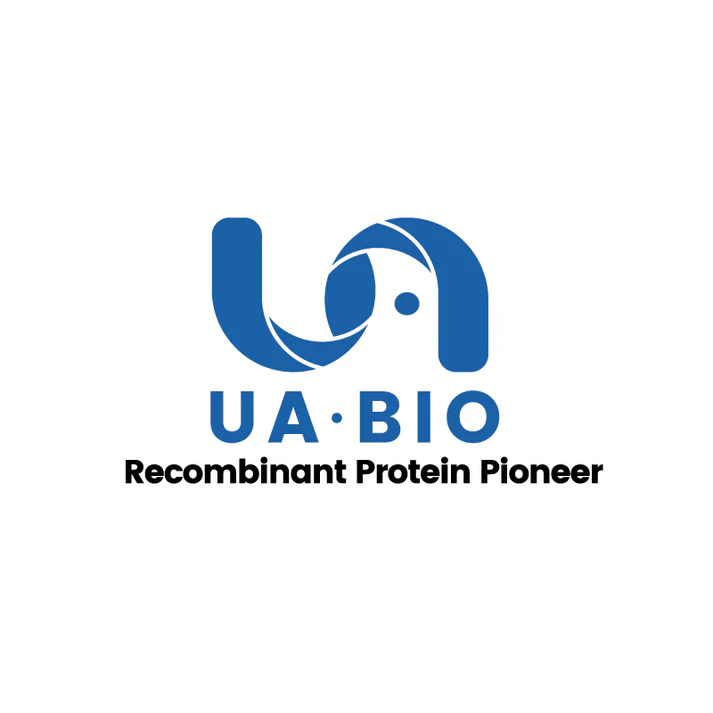In the experiment, the 773bp target fragment was amplified by PCR using PUC57 as the template. At the same time, competing enzymes were added to investigate the enzyme activity of Pfu DNA PolymeraseⅡ. As shown in the figure, this product has the following effects.
Lane 1 Negative Control (negative control with no added enzyme only);
Lane 2 UA-Pfu DNA Polymerase Ⅱ 0.5U;
Lane 3 UA-Pfu DNA Polymerase Ⅱ 1.25U;
Lane 4 UA-Pfu DNA Polymerase Ⅱ 2.5U;
Lane 5 UA-Pfu DNA Polymerase Ⅱ 5U;
Lane 6 Competing product A 5U;
Lane 7 Competing product B 5U;
Product Details
Product Details
Product Specification
| Synonyms | DNA polymerase、 DNA polymerase B、Pfu polymerase、Pol I |
| Expression System | E.coli |
| Molecular Weight | 90 kDa (Reducing) |
| Purity | >95% by SDS-PAGE |
| Tag | His Tag |
| Physical Appearance | Liquid |
| Storage Buffer | 20 mM Tris-HCl, 0.1 mM EDTA, 0.1% Tween20, 0.1% triton X100, 1 mM DTT, 100 mM KCl, 50%Glycerol、pH 8.2 @ 25°C |
| Stability & Storage | Store at -25 ~ -15℃ for 2 years |
| Reference | [1] Lin, T. C. , et al. "Cloning and expression of T4 DNA polymerase." Proceedings of the National Academy of Sciences 84.20(1987):7000-7004. |
Background
Pfu DNA Polymerase is a thermostable enzyme that replicates DNA at 75°C. It catalyzes the polymerization of nucleotides into duplex DNA in the 5´→3´ direction in the presence of magnesium. The enzyme has a molecular weight of approximately 90,000 daltons as estimated from the predicted amino acid sequence and exhibits 3´→5´ exonuclease (proofreading) activity. Pfu DNA Polymerase is recommended for use in PCR and primer extension reactions that require high fidelity.
Components
Storage Solution : 5 U/ul Pfu DNA Polymerase Ⅱ, 20 mM Tris-HCl, 0.1 mM EDTA, 0.1% Tween20, 0.1% triton X100, 1 mM DTT, 100 mM KCl, 50%Glycerol、pH 8.2 @ 25°C
10* Reaction Buffer: 200 mM Tris-HCl (pH 8.8) , 20 mM MgSO4, 100 mM KCl, 100 mM (NH4) 2SO4, 1% Triton X-100, 1 mg/ml nuclease-free BSA
Protocol
1. Set up a 50 μl PCR reaction system as follows:
Reagent |
Volume |
Final Concentration |
10X Pfu Buffer (with Mg2+) |
5µl |
1 X |
dNTP mix, 10mM each |
1µl |
200µM each |
upstream primer |
5–50pmol |
0.1–1.0µM |
downstream primer |
5–50pmol |
0.1–1.0µM |
DNA template |
variable |
<0.5µg/50µl |
Pfu DNA Polymerase (5U/µl) |
variable |
1.25U/50µl |
DEPC-treated Water |
Up to 50µl |
- |
2. Recommended thermal cycling conditions for Pfu DNA Polymerase-mediated PCR amplification as follows:
Step |
Temperature |
Time |
Number of Cycles |
Initial Denaturation |
95°C |
1–2 minutes |
1 cycle |
|
Denaturation Annealing* Extension |
95°C 42–65°C 72–74°C |
0.5–1 minute 30 seconds 2–4 minutes |
25–35 cycles
|
Final Extension |
72–74°C |
5 minutes |
1 cycle |
Soak |
4°C |
Indefinite |
1 cycle |
*The annealing temperature for a specific amplification reaction will depend upon the sequences of the two primers.
Guidelines
Note: It is critical to withhold Pfu DNA Polymerase until after the addition of dNTPs; otherwise, the proofreading activity of the polymerase may degrade the primers,resulting in nonspecific amplification and reduced product yield. Assemble on ice.
Unit Definition
Picture
Picture
Bioactivity
SDS-PAGE
2μg (R: reducing condition, N: non-reducing condition).


